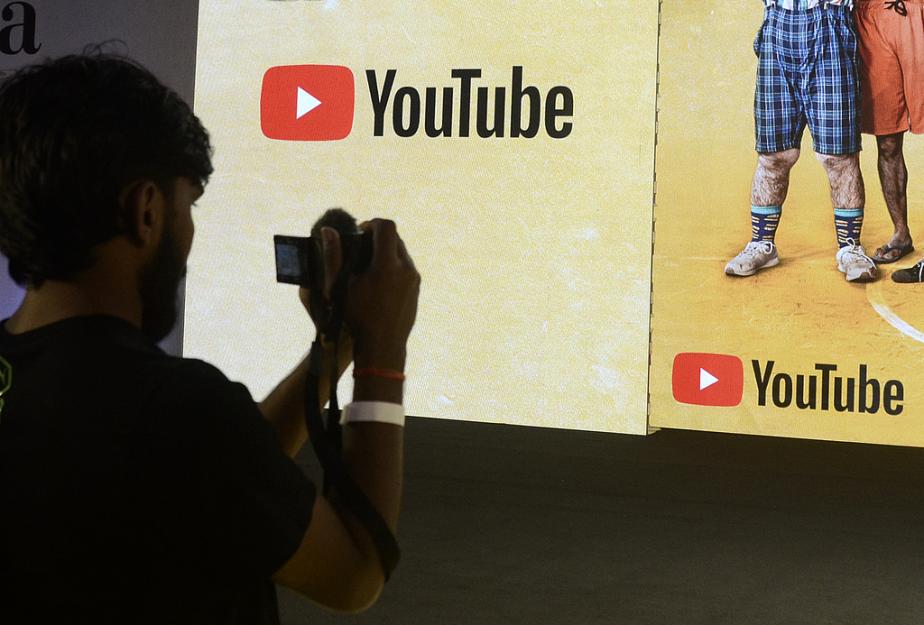
In the digital age, artificial intelligence (AI) is redefining our relationship with information, media, and the real world in unprecedented ways. Recently, YouTube has been secretly using AI technology to edit user videos, especially in its short video feature YouTube Shorts, which performs deblurring, denoising, and clarity enhancement on videos. This move has sparked strong reactions from users, especially when video creators were not informed and AI intervened in their content without permission. The deeper issue is that this behavior may not only be a simple technological improvement, but it may also gradually blur our understanding of 'reality' and erode our true connection with the world.
AI Editing: From Convenience to Doubt
The technology used by YouTube to enhance videos may seem harmless or even beneficial on the surface. The AI functions on smartphones have gradually become a part of daily life, automatically optimizing camera effects, improving video quality, and bringing better user experience. For example, many smartphones use algorithms to automatically enhance image clarity or sharpen details, a technology that has been widely accepted. However, YouTube's approach is different from traditional mobile phone features. Because it involves modifications without the user's consent, and these modifications can affect the creator's personalized content, thereby disrupting the trust relationship between the creator and the audience.
In social media platforms, the relationship between creators and audiences is usually based on transparency and authenticity. If creators find that their content has been modified without their consent, it may not only affect their image, but also break the trust between them and the audience. Therefore, the behavior of AI editing videos not only brings about technological changes, but also involves the authenticity of content and the autonomy of creators more deeply.
The 'invisible hand' of AI intervention
It is unsettling that these modifications are often 'invisible' - the video may not appear to have undergone significant changes, but upon comparison, subtle changes can be found in certain details: smoother skin, clearer wrinkles on clothing, and even changes in the shape of the ears. The most worrying thing is that these modifications were not made with the consent or knowledge of the creators, which infringes on their creative freedom.
This' invisible 'artificial intelligence intervention also reflects the way technology permeates daily life today. We do not fully understand how these technologies affect our content and how we are shaped. For example, the AI optimization features in modern smartphones allow users to choose whether to enable certain features, but modifications to YouTube are done automatically and are not explicitly communicated to creators. This potential 'implicit manipulation' can affect our trust in the content we see, thereby impacting our perception of reality.
The double-edged sword effect of AI
The widespread application of artificial intelligence has brought great convenience, but it has also posed increasing moral and ethical challenges to humanity. As platforms such as YouTube utilize AI technology to edit and optimize video content, we not only have to face the convenience brought by technological innovation, but also have to consider whether this behavior will undermine the trust relationship between creators and viewers.
It is worth noting that YouTube's response to this issue is not satisfactory. They interpreted the use of AI technology as an "experiment" and did not explicitly respond whether creators are allowed to choose whether to enable the technology. This vague response reflects the platform's neglect of transparency when promoting new technologies. Experts point out that it is the intervention of this implicit technology that gradually blurs our understanding of the concept of "reality". This situation is similar to the early concerns about Photoshop, which have been amplified and deepened with the advancement of technology.
Future Challenges and Reflections
With the further development of technology, we may usher in a world full of "augmented reality". The 'reality' in photos and videos is no longer the only reality, but a multiple reality overlay processed by artificial intelligence. This is not only a trend in technological development, but also a profound challenge to our culture, society, and interpersonal relationships. We may need stricter regulation and transparent rules to ensure that trust between creators and audiences is not undermined.
Whether YouTube and other platforms can achieve transparency and respect the will of creators when using AI technology will be the key to determining their future sustainable development. If the abuse of such technology cannot be effectively curbed, it may ultimately lead to a crisis of trust in our information, which will be a major challenge we have to face.
In short, behind AI edited videos lies a profound impact on redefining reality and the relationship between viewers and creators. As users and audiences of technology, we should be more vigilant and actively consider how to maintain authenticity, trust, and transparency while enjoying the convenience brought by technology.

According to a recent report by Rich Asplund, a columnist for Barchart, the global sugar market is currently experiencing a complex and profound supply-demand game.
According to a recent report by Rich Asplund, a columnist f…
On January 13th local time, the three major US stock indice…
Recently, the 2026 edition of the MIT Technology Review lis…
On January 15, 2026, the US military announced the seizure …
At the 2026 J.P. Morgan Healthcare Conference, a joint anno…
For much of 2025, the market was rethinking whether the dol…